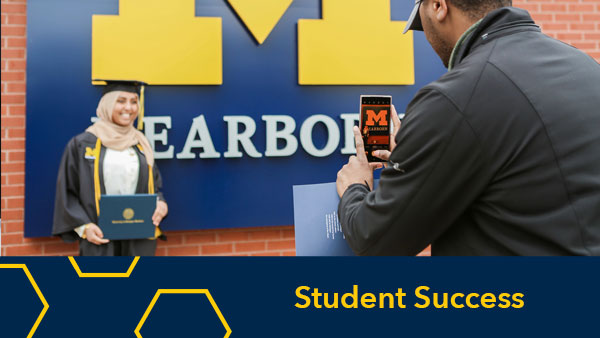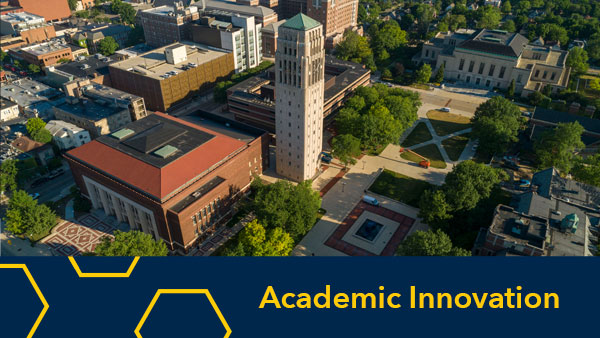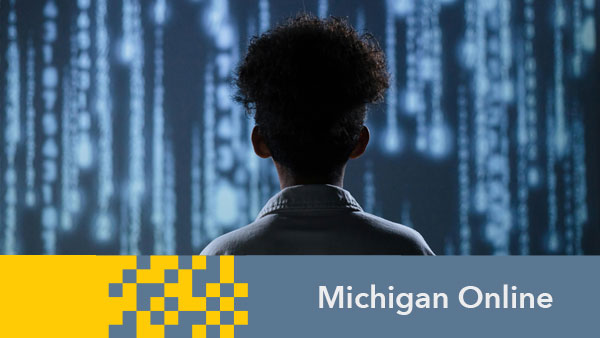Amy Homkes-Hayes, Lead Innovation Advocate
The Fall 2017 semester is almost here and much like farmers gearing up to harvest their fall crops, in the Digital Innovation Greenhouse (DIG) we are readying to reap the efforts of our summer development cycle. In DIG we use an iterative process to software design and development. What does this mean exactly? Essentially, we continually improve our tools — produce better code, strengthen user interface and apply behavioral science, to the the digital teaching and learning tools we’ve championed here at the University of Michigan (U-M). Iterating on our tools happens in parallel with scaling our user bases. This fall we are excited to show off new features and looks in our suite of software, while also highlighting some of our new users. Here are just a few of the things we are looking forward to:
The Problem Roulette Re-Launch
 In 2011, Problem Roulette was born. Arthur F. Thurnau Professor of Physics and Astronomy Gus Evrard created the Problem Roulette tool as a way to provide web-based practice of past exam-like problems. Problem Roulette offered students equal access to a low-risk practice space to develop domain-specific competencies. Its use quickly expanded to eight courses and 15,000 study sessions per month during the fall and winter academic terms. For the past several months DIG, in partnership with the Gameful Learning Lab (GLL), is re-designing and re-coding Problem Roulette substantially by improving the look and feel of the tool, while also increasing the ease of use for both faculty and students. Not only are we eager to re-launch the new and improved Problem Roulette, but we are especially keen on introducing new features including:
In 2011, Problem Roulette was born. Arthur F. Thurnau Professor of Physics and Astronomy Gus Evrard created the Problem Roulette tool as a way to provide web-based practice of past exam-like problems. Problem Roulette offered students equal access to a low-risk practice space to develop domain-specific competencies. Its use quickly expanded to eight courses and 15,000 study sessions per month during the fall and winter academic terms. For the past several months DIG, in partnership with the Gameful Learning Lab (GLL), is re-designing and re-coding Problem Roulette substantially by improving the look and feel of the tool, while also increasing the ease of use for both faculty and students. Not only are we eager to re-launch the new and improved Problem Roulette, but we are especially keen on introducing new features including:
- Exam mode, where students can do timed practice across multiple domains to mimic the experience of taking a test and creating their own practice exam templates;
- Group study where students can work cooperatively with one another on problems.
ECoach Expansion
 What would it look like to deliver personalized content to students in a large course where faculty cannot otherwise easily reach each and every one? Tim McKay, Arthur F. Thurnau Professor of Physics, Astronomy and Education and Faculty Director of the Digital Innovation Greenhouse, asked this very question several years ago, and sought to seek a technological solution to this pressing question. ECoach was Professor McKay’s solution. Initially developed by a research team as a way to create personal connection and support for students in introductory physics, chemistry, statistics and biology classes, the application has now grown into a tailored communication system built on behavioral science techniques like motivational affirmation. Students use ECoach to receive personalized assistance in large classes, learn best practices, discover opportunities in areas of interest and avoid common pitfalls. As ECoach becomes more refined, we are actively seeking to increase its use in large courses throughout U-M. We are excited to announce that this fall ECoach will go live in nine courses:
What would it look like to deliver personalized content to students in a large course where faculty cannot otherwise easily reach each and every one? Tim McKay, Arthur F. Thurnau Professor of Physics, Astronomy and Education and Faculty Director of the Digital Innovation Greenhouse, asked this very question several years ago, and sought to seek a technological solution to this pressing question. ECoach was Professor McKay’s solution. Initially developed by a research team as a way to create personal connection and support for students in introductory physics, chemistry, statistics and biology classes, the application has now grown into a tailored communication system built on behavioral science techniques like motivational affirmation. Students use ECoach to receive personalized assistance in large classes, learn best practices, discover opportunities in areas of interest and avoid common pitfalls. As ECoach becomes more refined, we are actively seeking to increase its use in large courses throughout U-M. We are excited to announce that this fall ECoach will go live in nine courses:
- New ECoach courses include Biology 171 (Introductory Biology: Ecology and Evolution) and two sections of Econ 101 (Principles of Economics I);
- ECoach is coming back to Physics 140 (General Physics I);
- ECoach will remain in Chem 130 (General Chemistry), EECS 183 (Elementary Programming Concepts), EECS 280 (Programming and Introductory Data Structures), Engr 101 (Intro Comp & Prog) and Stats 250 (Introduction to Statistics and Data Analysis)
In addition to these large introductory courses in Science, Technology, Engineering, and Math (STEM), we are also eager to pilot ECoach in an applied liberal arts course:
- ALA 125 (Positioning Yourself for a Successful Internship)
This kind of course is new for the ECoach team, based on factors like the course’s duration (it’s two seven week sessions), the kind of assignments the course requires (no exams), and its grading structure (pass/fail versus letter grades).
Finally, while the First Year ECoach’s content will remain focused on first year students, all U-M students will now have access to it so any student who needs a refresher on, for example, best ways to study, will be able to view what ECoach has to say.
M-Write Developments
 While we, rightfully, spend ample time helping students become better writers, how do we help students use writing-to-learn by asking them to explain what they know? M-Write, founded by Anne Gere, Arthur F. Thurnau, Gertrude Buck Collegiate Professor of Education and English Language and Literature and Director of the Sweetland Writing Center and Ginger Shultz, Assistant Professor, Chemistry, address this very issue by employing writing-to-learn pedagogy through digital infrastructure, enabling faculty to infuse writing into large gateway courses. As Professor Gere and Professor Shultz work to expand the use of M-Write in concert by facilitating faculty development, DIG is focusing on making improvements to and expanding the digital components of the tool. Over the fall semester we are eager to work on:
While we, rightfully, spend ample time helping students become better writers, how do we help students use writing-to-learn by asking them to explain what they know? M-Write, founded by Anne Gere, Arthur F. Thurnau, Gertrude Buck Collegiate Professor of Education and English Language and Literature and Director of the Sweetland Writing Center and Ginger Shultz, Assistant Professor, Chemistry, address this very issue by employing writing-to-learn pedagogy through digital infrastructure, enabling faculty to infuse writing into large gateway courses. As Professor Gere and Professor Shultz work to expand the use of M-Write in concert by facilitating faculty development, DIG is focusing on making improvements to and expanding the digital components of the tool. Over the fall semester we are eager to work on:
- An enhanced peer review tool that has benefited from DIG user experience expertise to create an easy-to-use way for students to seek peer-to-peer feedback on writing-to-learn assignments. Our enhanced user experience will also extend to instructors and writing fellows increasing the ease with which writing assignments may be reviewed;
- An automated text analysis tool that will work with trained writing fellows to provide feedback to students on the quality and content of their writing, and to lessen the work of grading writing in large courses for instructors and writing fellows;
- A long-term integration with ECoach to send personalized feedback to students on their writing based on the results of the automated text analysis coupled with writing fellows’ review.
As you can see, fall is an exhilarating time here in DIG as more and more students, faculty, and staff use the tools we continue to iterate on. We look forward to planting another crop of DIG seeds and watching them grow till our next release of digital edtech made at Michigan.


